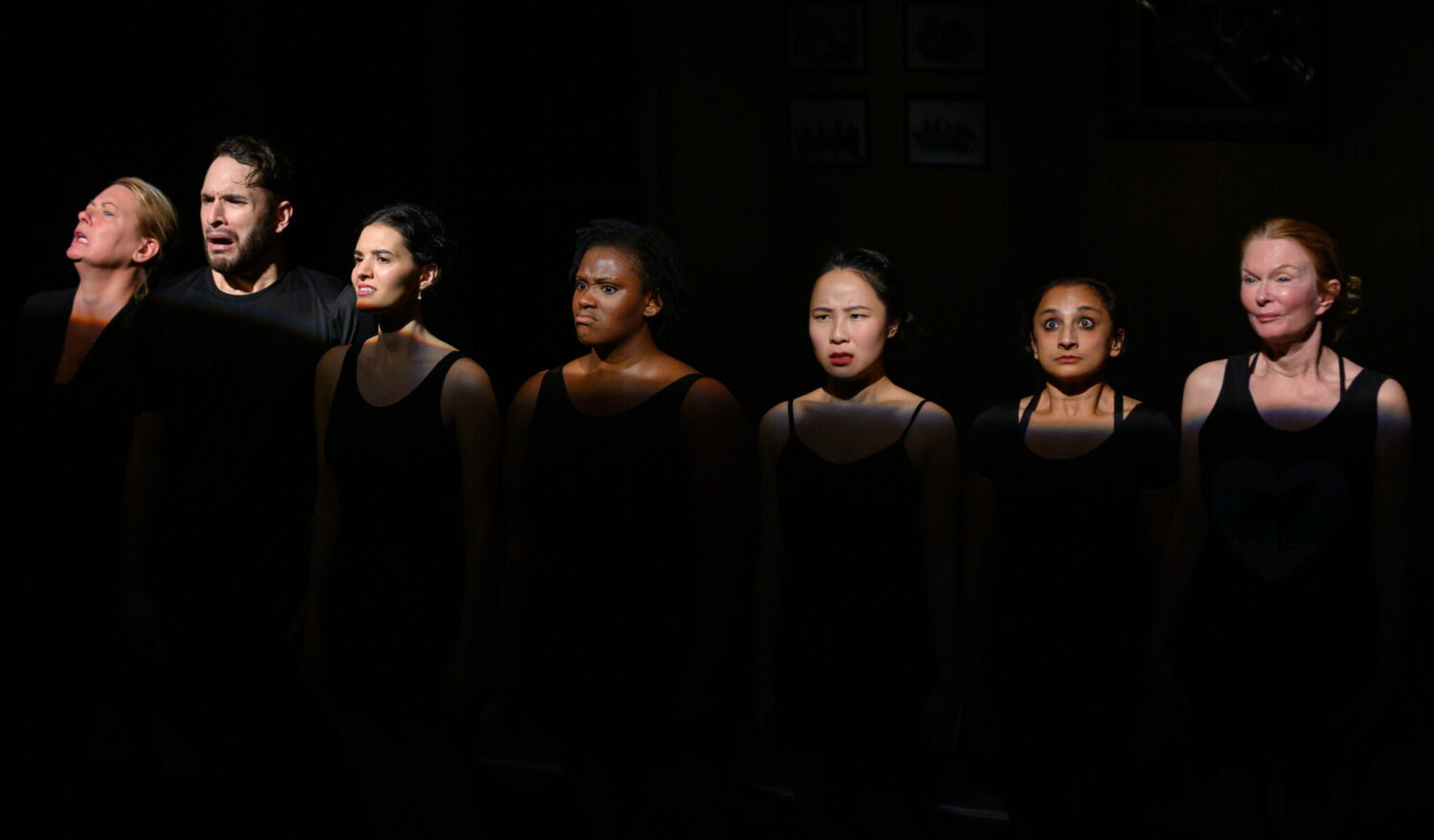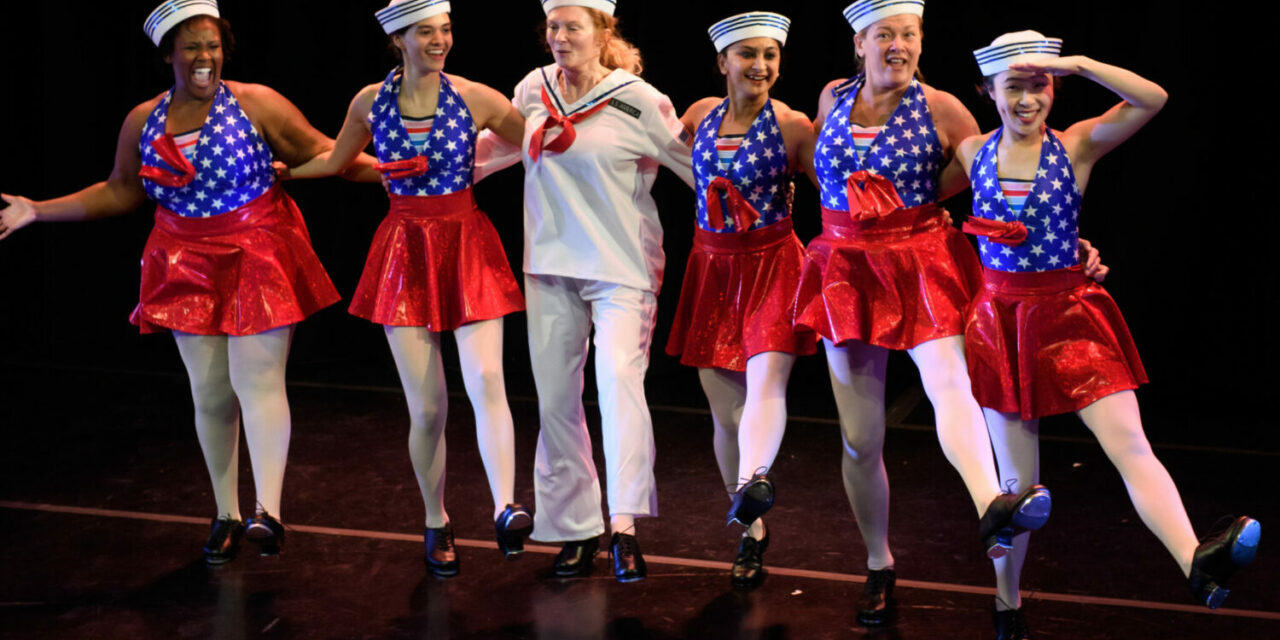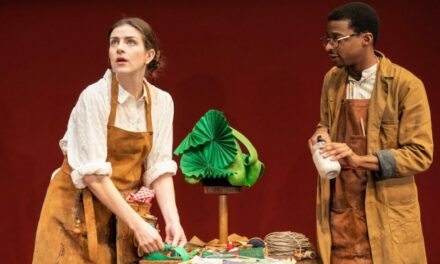Allow me to introduce you to the fierce yet fragile preteens who populate Clare Barron’s savagely wonderful play Dance Nation.
There’s Sofia (Mei Lu Barnum), that girl you knew in middle school who had all the answers and was ashamed of nothing – you know, the girl who was unembarrassed to admit that she masturbated or watched porn, the one who had a much older sister who told her stuff.
There’s Ashlee (Lissa Brennan), “future president of a post-apocalyptic USA,” who carries so much potential and possibility and fire in her tiny little body that it threatens to overwhelm her. And also Connie (Mita Ghosal), a good dancer who’s also a bit of a hanger-on, a follower who’s still clinging to childhood.
There’s Maeve (Cary Ann Spear), the oldest on the dance competition team to which they all belong and seemingly the least committed to the art; always late and a little disheveled, she stays on the team for the friendship rather than the competition.
There’s Amina (Liron Blumenthal), the star dancer who has to navigate between her desire to be liked by her friends and her fervent longing to be the best. And Zuzu (Hope Anthony), who is second-best on the team to Amina and struggling with her dawning recognition that she doesn’t have the talent and drive to be the great dancer she has always dreamed of being.
And finally, there’s Luke (Jerreme Rodriguez), the only boy on the dance team, whose vestigial presence in this world of girls serves mainly to call attention to the play’s radical, glorious centering of female experience.
Barron’s play is, on the surface, about a bunch of girls navigating competition and friendship in the context of a dance studio – it’s about the delicate psychosocial choreography that ensues when girls compete and their hunger to excel rubs up against both the social pressure to be nice and the desperate fear of losing a friend. It’s about all the messy complicated feelings that come out of girls’ need for each other – for example, when Zuzu tells Amina that she still loves her and still considers her to be her best friend, but that she has to stop talking to her about dance, you’re catapulted with her into a swirl of conflicting adolescent emotions, a confusing brew of affection, neediness, jealousy, shame, and self-protection. And it’s about the all-important, hugely looming role that Moms (Nancy McNulty) play in the life of a preteen girl – as friend, supporter, coach, chauffeur, advocate, advisor, champion, and shoulder to cry on.

L to R: Lissa Brennan, Jerreme Rodriguez, Liron Blumenthal, Hope Anthony, Mei Lu Barnum, Mita Ghosal, and Cary Ann Spear. Photo by Jeff Swensen, courtesy barebones productions.
But dig deeper and this is really a play about the superpowers we lose as we transition from grrrlhood and are socialized into womanhood. It’s no accident that the adolescents in this play are all played by adult actors, all of varying ages – we’re meant to see the feral child haunted by the tamed adult she will become. Each of the characters has a moment in which they reveal the wild animal within, and it’s simultaneously intoxicating and a little depressing, particularly when the gulf between the body of the actor and the ferocity of the character yawns open. One of the play’s most exhilarating moments comes in the form of an aria to girl power delivered with savage fury by Brennan as Ashlee; one of its most haunting ones comes when Spear, as Maeve, steps into her adult self to confess that she will one day forget that she was once able to fly. I never had that particular superpower, but Dance Nation reminded me that my preteen self was a far fiercer, more passionate, more idealistic, more confident, and way more kick-ass human than I am today.
Director Melissa Martin and choreographer Tomé Cousin pull no punches with their staging of the play and its many dance numbers, and the production makes excellent use of Steve Tolin’s talents with blood and gore special effects to lift the play into the surreal at key moments. Robert C.T. Steele adds a playful touch with the costuming, particularly in the dance routines. The ensemble brilliantly maneuvers between the play’s comedy and its pathos – this is a rollercoaster of a show, and you’re in such fine hands you can just strap in and enjoy the ride. I experienced it two days ago and I’m still delirious from its dizzying effects; the play’s climactic choral ode to the pussy will live on in my memory as one of the highlights of this year’s season.
This article was originally posted in The Pittsburgh Tatler on 25 November 2019 and has been reposted with permission. To read the original article, click here.
This post was written by the author in their personal capacity.The opinions expressed in this article are the author’s own and do not reflect the view of The Theatre Times, their staff or collaborators.
This post was written by Wendy Arons.
The views expressed here belong to the author and do not necessarily reflect our views and opinions.


















